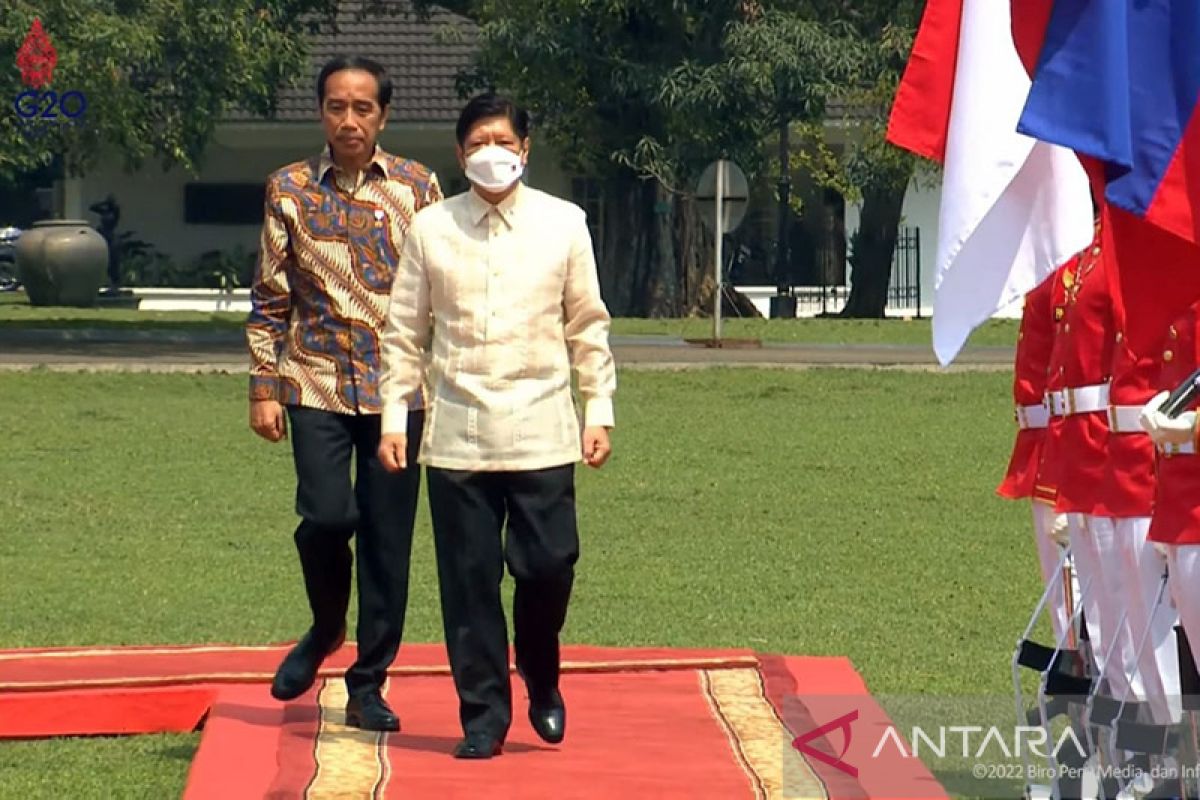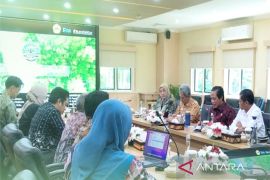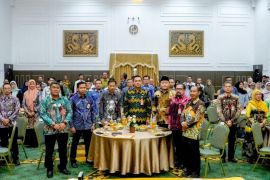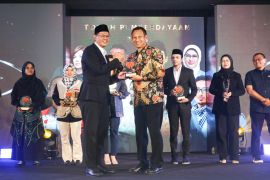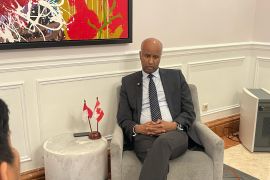Jakarta (ANTARA) - President Joko Widodo (Jokowi) dan First Lady Iriana received a visit from the Philippines President Ferdinand Romualdez Marcos Jr and First Lady Louise Araneta-Marcos at the Bogor Palace, West Java, on Monday.
President Jokowi and President Marcos shook hands, while First Lady Iriana welcomed Araneta-Marcos by presenting a flower bouquet.
Thereafter, the two heads of state attended the welcoming ceremony where the national anthems of Indonesia and the Philippines were played, followed by a troop inspection.
Jokowi then introduced government ministers present at the palace to welcome Marcos. The officials comprised Coordinating Minister of Political, Legal, and Security Affairs Mahfud MD, Coordinating Minister of Maritime and Investment Affairs Luhut Binsar Pandjaitan, Minister of Foreign Affairs Retno Marsudi, Minister of State Secretariat Pratikno, and Minister of Tourism and Creative Economy Sandiaga Uno.
Moreover, Ambassador of Indonesia to the Philippines Agus Widjojo and Foreign Affairs Ministry's Director General of Asia-Pacific and African Affairs Abdul Kadir Jailani were present to welcome the Philippine head of state.
Read also: Indonesia, France discuss cooperation in Surabaya high-speed railway system
The two heads of state are expected to plant trees, be present at bilateral meetings conducted by respective delegates, and to observe the signing of memoranda of understanding between both countries.
Jokowi and Marcos are also expected to present their press statement on Indonesia-Philippines relations and bilateral cooperation.
President Marcos and First Lady Araneta-Marcos arrived in Indonesia on Sunday (September 4) and were welcomed by Minister of Communications and Informatics Johnny G. Plate at the Soekarno-Hatta International Airport.
The Philippines presidential entourage had earlier visited Kalibata Heroes Cemetery in South Jakarta to lay a wreath and pay homage to the national heroes.
Read also: Govt pushes upstream, downstream development of sorghum
Read also: PUPR Ministry targets 100-percent smart living by 2030


